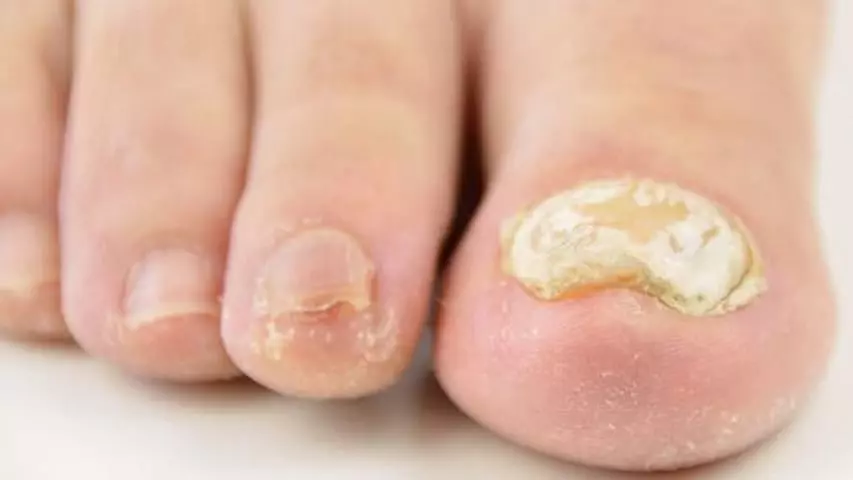Dealing with thick toenails can be a challenging task, making routine nail care a more complex and sometimes frustrating experience. Using the right tools designed specifically for thick toenails is essential to ensure effective, safe, and comfortable nail care.
This article will provide an in-depth guide to understand treatments, how to trim those tough thick toenail with ease and to get toenail clippers specifically designed for thick toenails. We will explore the common causes of thick toenails, discuss the characteristics of ideal toenail clippers for thick toenails, and share tips for trimming and maintaining thick toenails to achieve optimal nail health.
We’ve gathered this and many other information here where you can read more about foot and nail care.
In this comprehensive guide, we will discuss the causes, symptoms, treatments, and prevention tips for thick toenails, so you can better understand and manage this condition.
Whether you’re dealing with thick toenails or looking to prevent this condition, this article will provide you with the information you need to maintain healthy and beautiful toenails.
Causes of Thick Toenails
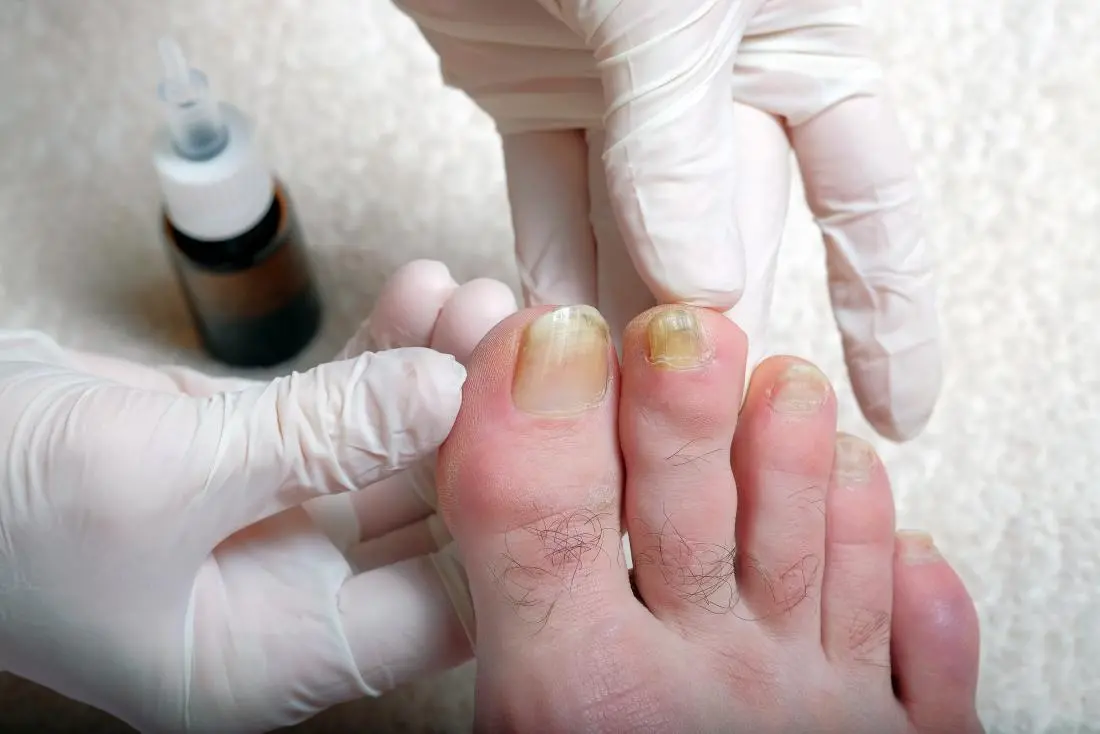
Various factors can contribute to the development of thick toenails. Understanding the root causes can help you manage and address the issues more effectively. Some of the most common causes of thick toenails include:
Aging
As people age, their nails tend to grow more slowly and may become thicker, harder, and more brittle. Reduced blood circulation and slower cell turnover can contribute to these changes.
Thick Toenails because of Fungal Infections
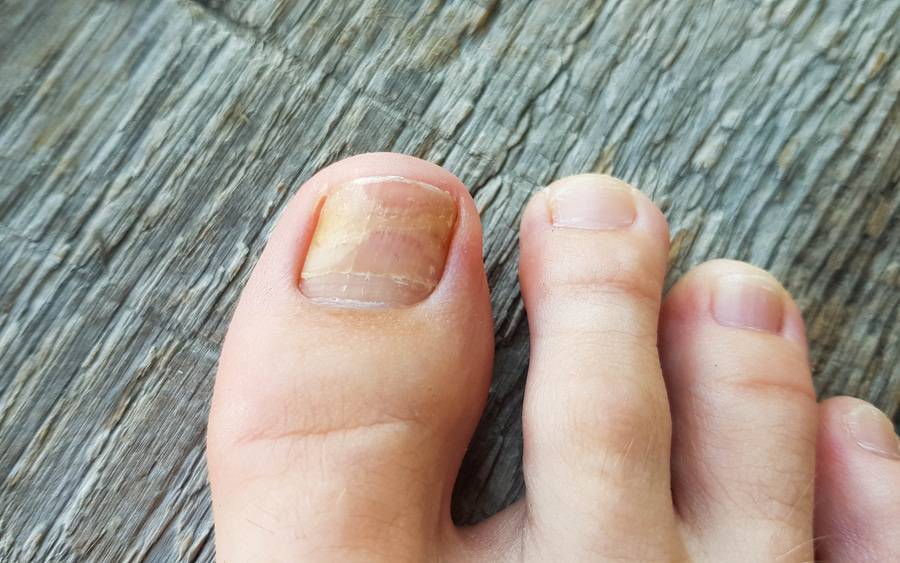
Fungal infections are the most common cause of thick toenails. When the fungus invades the nail bed, it can cause the toenail to thicken, become discolored, and even crumble.
A fungal infection, such as onychomycosis, can cause nails to thicken and become discolored, brittle, or crumbly. Fungi thrive in warm, moist environments and can easily spread through contact with contaminated surfaces, tools, or footwear.
Fungal infections can occur in people of all ages, but are more common in seniors or elderly.
Toenail fungus can be spread through direct contact with infected toenails, or by coming into contact with contaminated surfaces like floors, showers, or nail clippers.
It’s important to take steps to prevent the spread of fungal infections, such as avoiding sharing personal items like nail clippers and keeping feet clean and dry.
Psoriasis
This chronic skin condition can cause an overproduction of skin cells, leading to the formation of thick, discolored nails. Psoriatic nails may also develop pits, ridges, or white patches.
Trauma or injury
An injury to the nail or nail bed can disrupt normal nail growth, resulting in thickening or deformity. Repetitive trauma, such as from poorly fitting shoes or sports activities, can also cause thick toenails.
Other health conditions
Various medical conditions, such as diabetes, peripheral artery disease, or thyroid disorders, can impact nail health and lead to thickening or other changes in the nails.
By identifying the cause of your thick toenails, you can better understand the appropriate care and treatment options to manage the issue. In some cases, addressing the underlying health condition may help improve the appearance and health of your nails. However, regardless of the cause, using the right toenail clippers specifically designed for thick toenails will make the task of trimming and maintaining your nails easier and more effective.
Symptoms of Thick Toenails
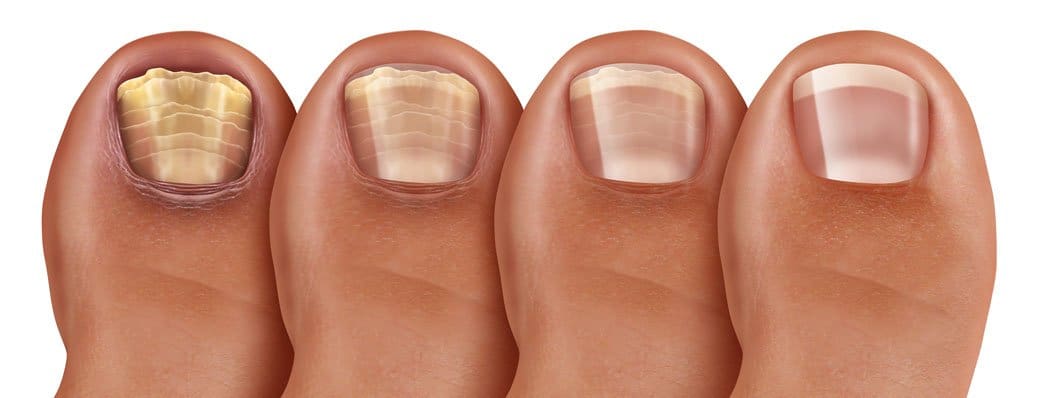
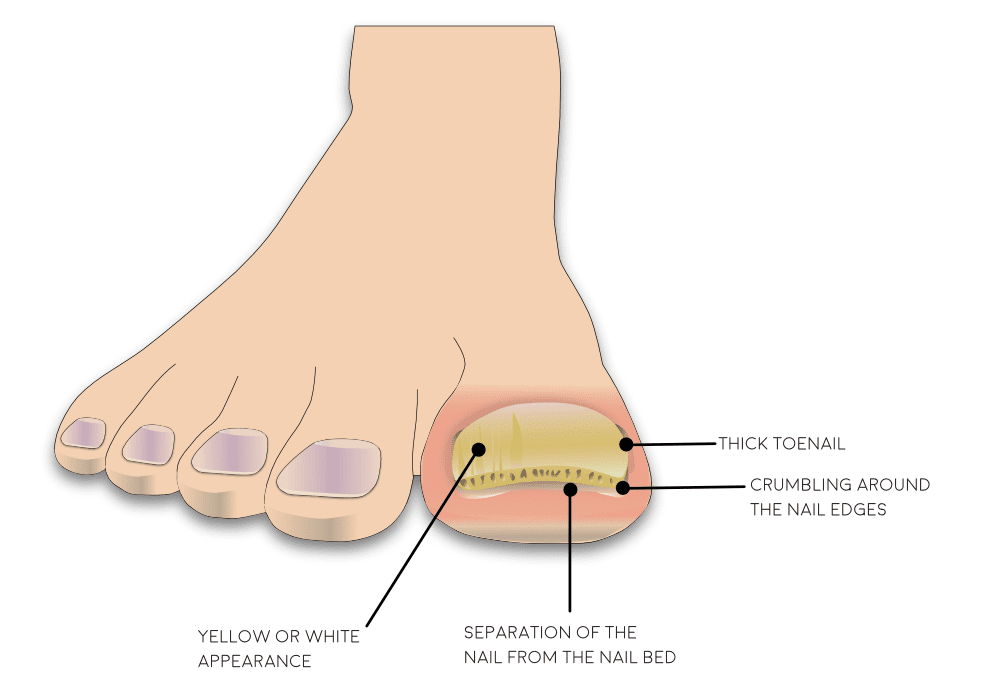
Thick toenails can have several symptoms, which may vary depending on the underlying cause. However, some of the most common symptoms of thick toenails include:
Thickening of the toenail
The toenail may become thicker than usual, which can make it difficult to trim or cut.
Discoloration of the toenail
The toenail may become discolored, typically turning yellow or brown.
Brittleness of the toenail
The toenail may become brittle, which can cause it to break or crumble easily.
Foul odor from the affected toenail
A fungal infection can cause a foul odor to emanate from the affected toenail.
Pain and discomfort when walking or wearing shoes
As the toenail thickens, it can cause discomfort, making it difficult to walk or wear shoes comfortably.
It’s important to note that if you’re experiencing any of these symptoms, it doesn’t necessarily mean you have thick toenails. It’s essential to get a proper diagnosis from a healthcare professional, as the symptoms of thick toenails can mimic other conditions.
8 Treatments for Thick Toenails
If you’re experiencing thick toenails, there are several treatment options available to help manage and alleviate your symptoms.
The treatment option that’s right for you will depend on the underlying cause of your thick toenails.
While fungal infections are the most common cause of thick toenails, there are other factors that can contribute to this condition.
Here are some common treatments for thick toenails:
Tea Tree Oil for Nail Fungus
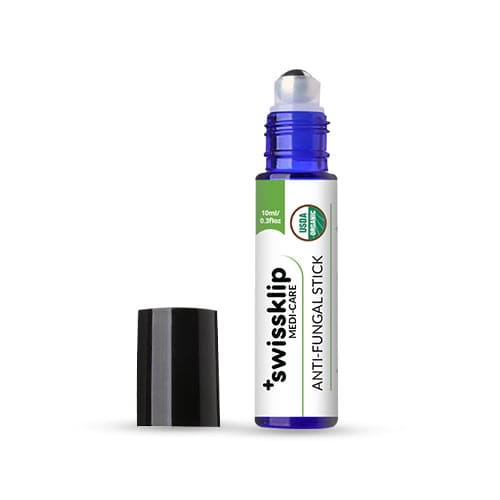
For thick toenails caused by toenail fungus, Tea Tree Oil for Nail Fungus is a highly effective solution.
The Medi-Care Anti-Fungal Stick, which contains tea tree oil as an active ingredient, has been highly effective in killing toenail fungus, according to customer reviews.
Many customers have reported Excellent Results after using this product, stating that their toenails look and feel healthier than ever before.
The Medi-Care Anti-Fungal Stick is easy to use and applies smoothly to the affected toenail, making it an excellent option for those looking for a natural and effective solution to toenail fungus.
If you’re struggling with toenail fungus, consider trying the Swissklip AntiFungal Stick with tea tree oil as a key ingredient to help Get your Toenails Back to their Healthy State.
Topical Medications
On the other hand, for thick toenail caused by psoriasis topical medications like corticosteroids may be prescribed to reduce inflammation and promote healthy nail growth.
Antifungal Medications

If the cause of your thick toenails is a fungal infection, your healthcare professional may prescribe oral or topical antifungal medications. These medications work by killing the fungus and preventing it from growing back.
Antibiotics
If the cause of your thick toenails is a bacterial infection, your healthcare professional may prescribe antibiotics to kill the bacteria.
Moisturizers
Dry, brittle nails can be treated with moisturizers that contain urea or lactic acid, which help to soften the nail and prevent cracking and splitting.
Surgery
In severe cases, surgery may be necessary to remove the thickened toenail. This procedure involves removing the affected toenail and allowing a new, healthy toenail to grow back in its place.
Laser Treatment
Laser therapy is a non-invasive procedure that uses high-energy light to destroy the fungus causing the thick toenail. This treatment is typically painless and doesn’t require any downtime.
Home Remedies
There are several home remedies that you can try to manage the symptoms of thick toenails. These include applying tea tree oil, vinegar, or baking soda to the affected toenail.
While these remedies may help alleviate your symptoms, it’s important to note that they are not a substitute for medical treatment.
It’s important to speak with your healthcare professional before attempting any home remedies or over-the-counter treatments for thick toenails.
Using the wrong treatment can worsen your symptoms or cause complications. With proper diagnosis and treatment, however, most cases of thick toenails can be effectively managed.
How to Prevent Thick Toenails
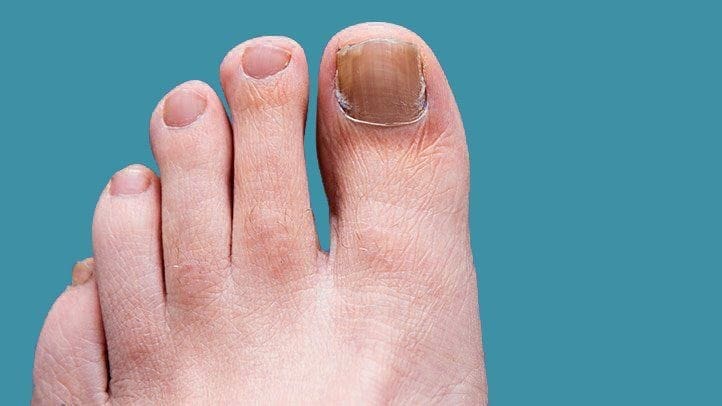
Prevention is always better than cure, especially when it comes to thick toenails. Here are some prevention tips to help you maintain healthy toenails and avoid thickening:
Trim Your Toenails Regularly
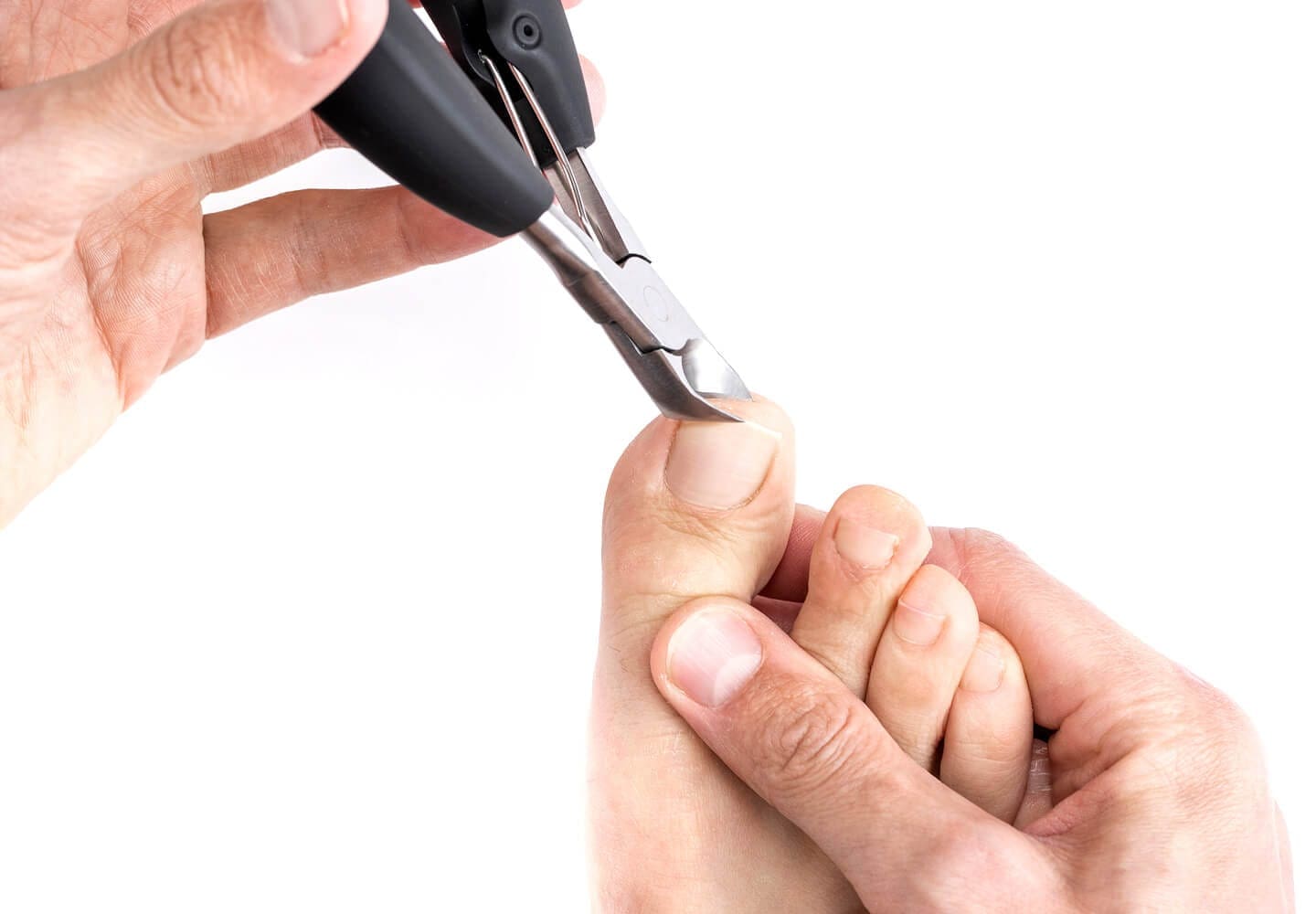
Regularly trimming your toenails can help prevent them from becoming thick and discolored.
Using a dedicated and High-Quality Toe Nail Clipper for thick nails like Swissklip Heavy Duty, can help to maintain your toenails healthy. Besides, it is a Podiatrist Recommended Toenail Clipper.
Be sure to trim them straight across and avoid cutting them too short, as this can cause ingrown toenails.
Keep Your Feet Clean and Dry
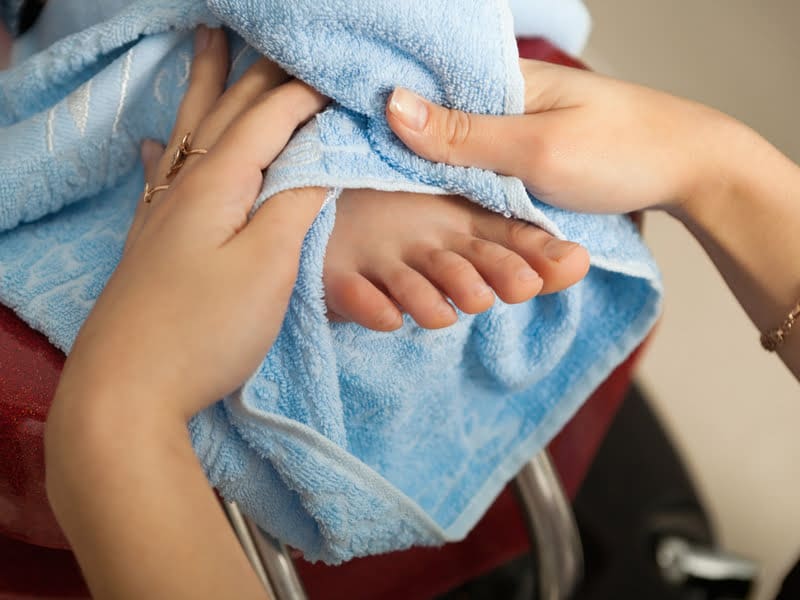
Be sure to wash your feet regularly, especially after sweating or exercising, and dry them thoroughly with a clean towel.
Avoid wearing damp or wet shoes or socks, as this can create the perfect environment for fungi to grow.
By maintaining good foot hygiene, you can significantly reduce your risk of developing thick toenails and other foot-related conditions.
Avoid Sharing Personal Items
Toenail fungus can be spread through personal items like nail clippers, socks, or shoes, so it’s important to avoid sharing these items with others.
Protect Your Toenails
Trauma to the toenail can cause thickening and discoloration. Wear protective footwear when engaging in activities that may cause trauma to the toenail, such as sports.
Maintain Good Foot Hygiene
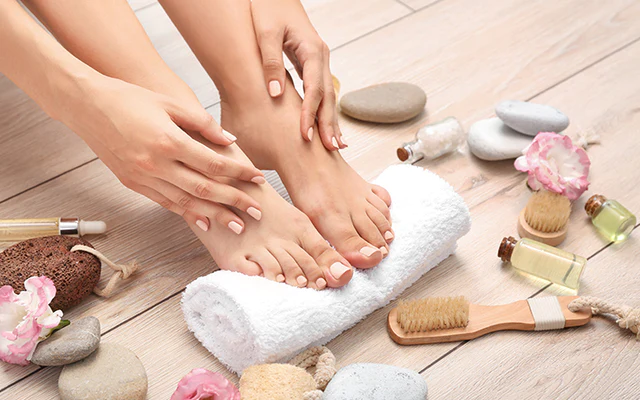
Keeping your feet clean and dry is essential for preventing toenail thickening caused by bacteria or other infections. Wash your feet regularly, dry them thoroughly, and use talcum powder to help absorb excess moisture.
Stay Hydrated
Drinking enough water is important for maintaining healthy skin and nails. Be sure to drink plenty of water each day to keep your toenails healthy and strong.
Monitor Your Health
Certain health conditions, such as psoriasis and diabetes, can cause thick toenails. Regularly monitoring your health and managing these conditions can help prevent thick toenails.
Wear Comfortable Shoes

Wearing shoes that fit well and have good support can help prevent toenail trauma and thickening. Avoid wearing tight-fitting shoes or high heels for extended periods of time.
By following these prevention tips, you can help maintain healthy toenails and prevent thickening caused by various factors. If you do experience thickening or discoloration of your toenails, it’s essential to see a healthcare professional for proper diagnosis and treatment.
Final Thoughts

Sum up the main points of the article
Encourage readers to seek medical attention if experiencing thick toenails, and to follow prevention tips for healthy toenails
Overall, the article is an authoritative and informative guide to the causes, symptoms, treatments, and prevention of thick toenails, aimed at helping readers understand and overcome this common problem.

